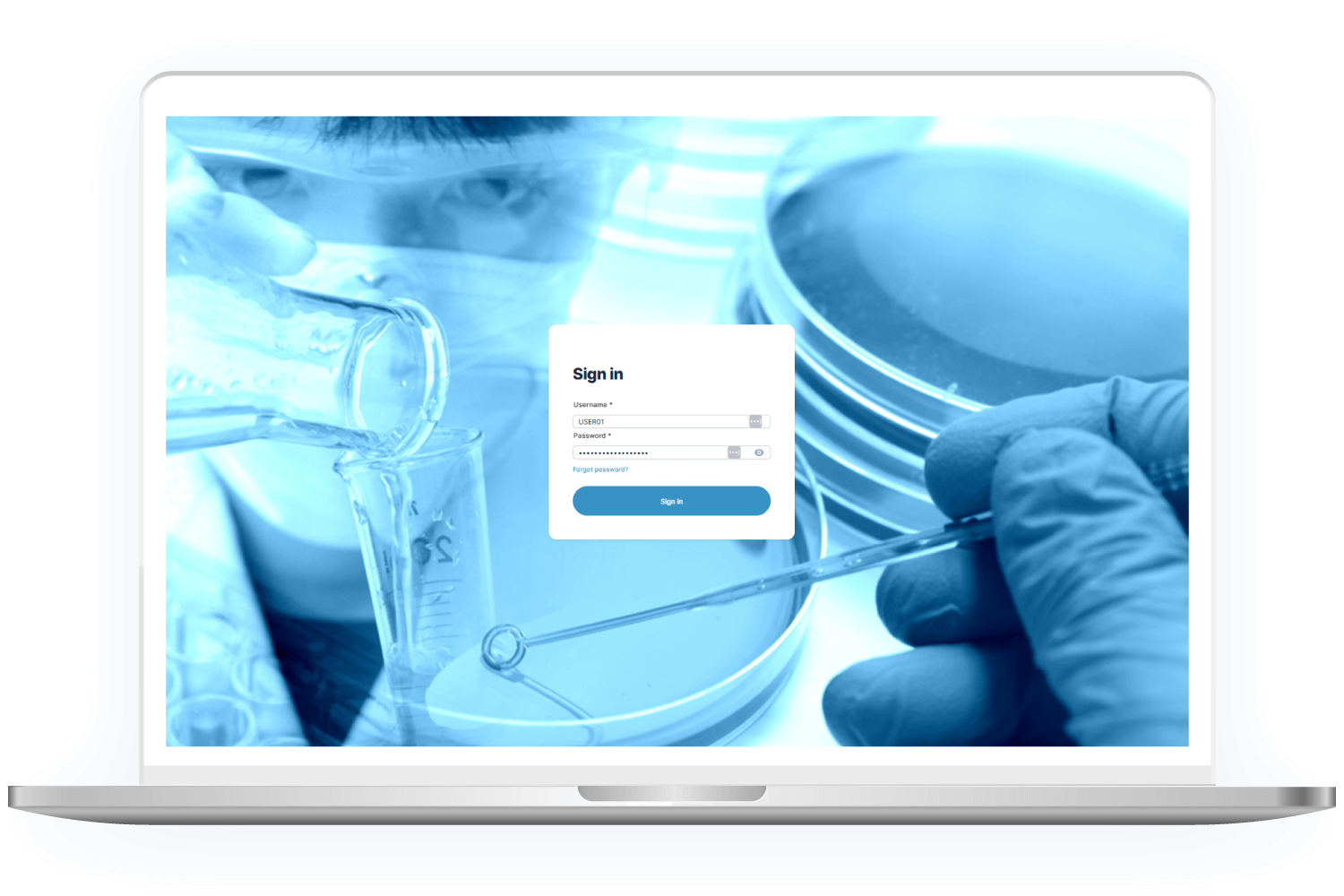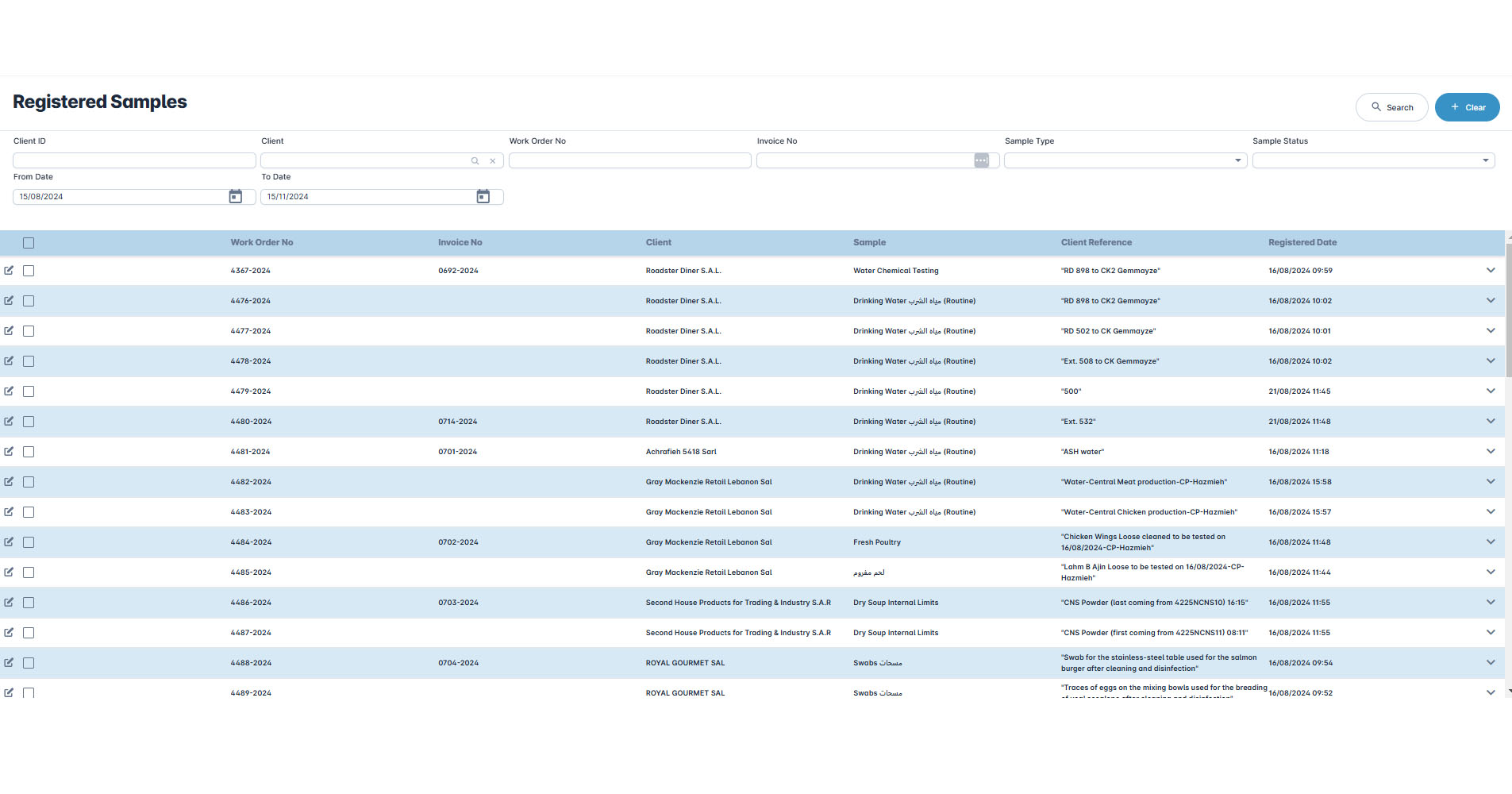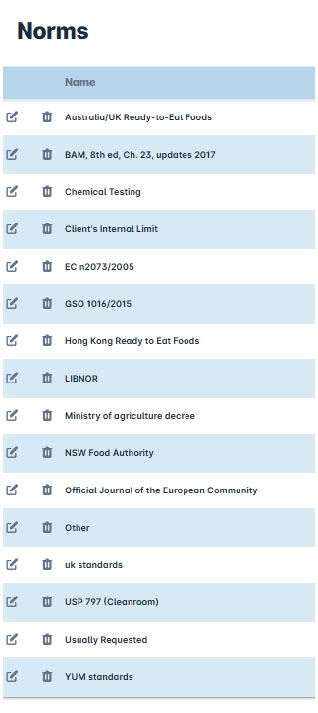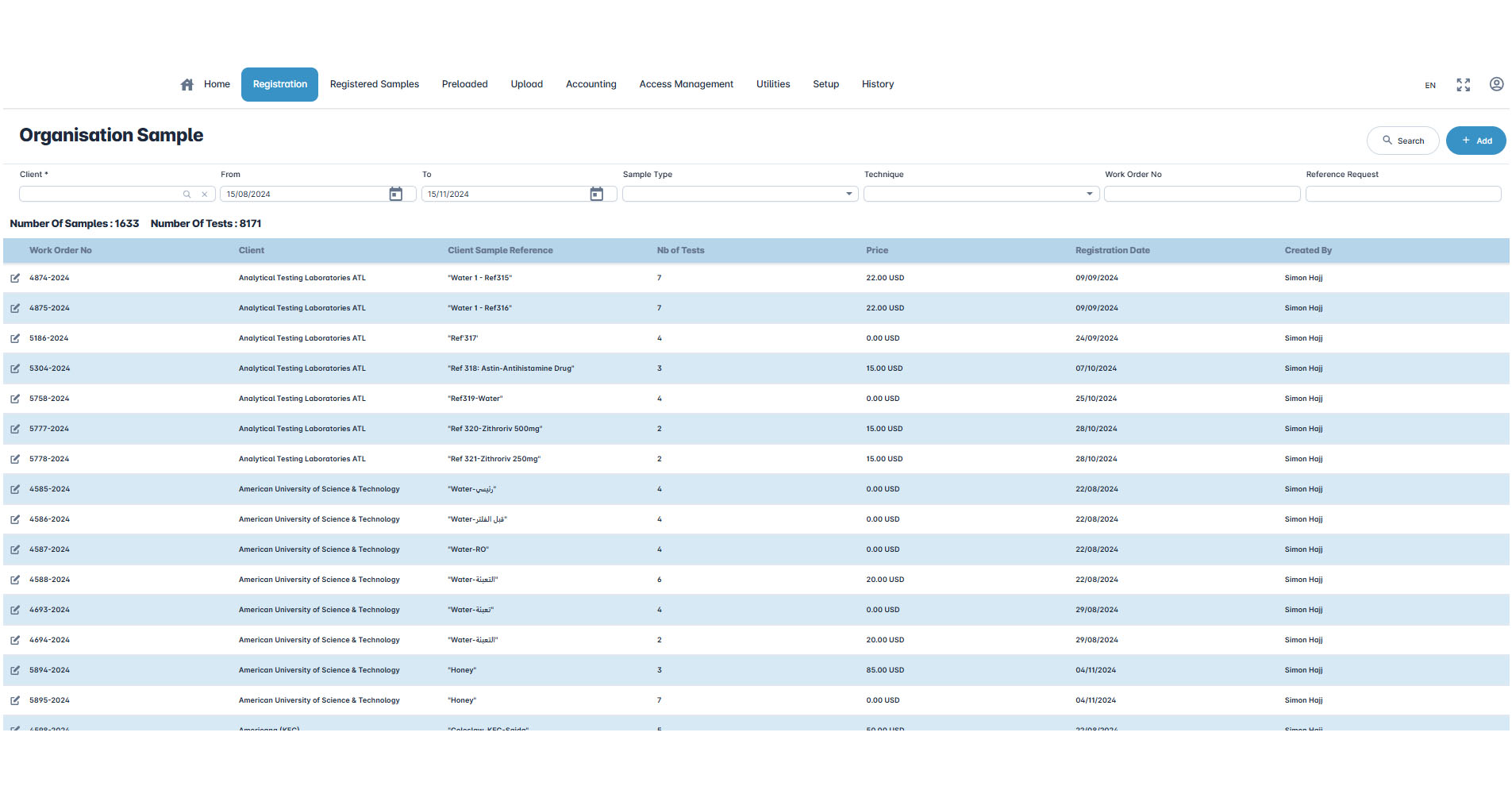LabCOM
A Laboratory Information Management System with robust registration, sample management, and reporting capabilities, tailored to handle organization samples, pricing, discounts, and a structured reporting system.

How it works
Primary Features
Client and Sample Registration
Efficiently manage client details, pricing, and sample types with our comprehensive registration module.
Sample Tracking and Work Orders
Streamline workflows from sample receipt to invoicing.
Detailed Reporting (REPLOAD)
Stay compliant and informed with a powerful reporting system.
Laboratory Management
Key Benefits
This LIMS setup provides a structured and comprehensive solution for managing client registration, sample processing, work orders, invoicing, and in-depth reporting.
Client/Organization Registration
Client Information
Capture client details such as name, contact information, billing details, and any contractual terms or agreements.
Organization Sample Details
Register the type of samples each organization typically submits (e.g., food, water, chemical), along with any specific handling instructions or storage requirements.
Pricing and Discount Setup
Standard Price List
Define prices for each test or service in a central price list. Pricing can vary by sample type, test type, or urgency level.
Discounts and Special Rates
Set up discount structures for specific clients, either as percentage-based discounts or flat rate reductions, and apply these discounts automatically at the time of invoicing.
Customizable Packages
Create bundled test packages tailored to client needs or frequently requested test groups, enabling automated discounts and streamlined pricing.
Create Client Profiles
Unique Client ID
Generate a unique ID for each client upon registration, which will be used across modules for sample tracking, invoicing, and report generation.
Client Preferences and Account Status
Track client preferences, such as preferred communication method, report format, and any financial arrangements like prepayments or payment terms.

Sample Registration
Work Order Generation
For each client’s submission, create a work order that includes client information, sample details, registered date, expected completion date, and any specific testing requests.
Sample Details
Register each sample with unique identifiers, sample type, source, and date of collection. Include relevant metadata like storage conditions or special handling needs.
Registered Date and Status Tracking
Log the registration date, and assign a status to each sample (e.g., “Received,” “In-Testing,” “Completed”) for easy tracking through the workflow.
Invoice Creation
Link Invoices to Work Orders
Once samples are registered, generate an invoice based on the tests selected, pricing, and any applicable discounts. The invoice is linked to the work order and sample ID for transparency.
Batch Invoicing for Multiple Samples
For clients submitting multiple samples, batch all related charges into a single invoice for streamlined billing.
Payment Tracking
Track payments received and outstanding balances in real-time, and maintain account status for each client.

Norms and Standards
Norms and Compliance Codes
Define the norms or regulatory standards applicable to each sample type or test. This includes regulatory requirements (e.g., ISO, FDA) or specific client-requested norms.
Quality Management System (QMS) Codes
Assign codes based on internal or industry standards for quality control and compliance in test procedures.
Sample Status Tracking
Status Updates
Allow technicians to update the status of each sample, from “Received” to “Under Analysis,” “Testing Complete,” and “Report Issued.”
Sample Lifecycle Documentation
Maintain a complete record of sample handling, including dates, personnel, and any deviations from standard procedures.
Sample Test Data and Results
Test Methods and Techniques
Document the specific techniques and methodologies applied for each test, such as PCR, spectrometry, or chromatography.
Test Ranges and Limits
Define expected test ranges and limits for each test type, allowing technicians to quickly identify results that are out of range or require special attention.
Test Price Configuration
Ensure each test has a defined price, adjustable based on client-specific discounts or bulk rates.
Sample Types and Test Packages
Categorize Sample Types
Define and organize samples by type (e.g., food, water, chemical), allowing the LIMS to automate workflow steps and tailor testing based on type.
Custom Test Packages
Configure test packages that group related tests for common sample types, offering bundled services that make invoicing more straightforward and reduce costs for clients.
Trusted by


